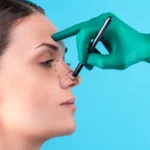What is Bruxism? Bruxism, or teeth grinding, is a condition that involves involuntary grinding or clenching of the teeth. It typically occurs during sleep but can also happen when awake, often as a response to stress, anxiety, or habit.
Left unmanaged, bruxism can lead to significant dental damage, affecting your overall dental health. Understanding how to recognize, prevent, and treat this condition can protect your teeth from severe wear and tear.
Why is Teeth Grinding Harmful?
Grinding your teeth may seem harmless, but over time, it can wear down tooth enamel, making teeth more susceptible to fractures, sensitivity, and decay. Severe cases may even cause temporomandibular joint (TMJ) disorders, which affect jaw mobility. Grinding also impacts dental restorations like veneers and fillings, causing them to break or loosen.
Common Symptoms of Bruxism
Many people are unaware they grind their teeth until noticeable damage occurs. Here are some common signs of teeth grinding:
- Tooth sensitivityor pain
- Headaches, particularly after waking up
- Pain in the jaw or face
- Worn or chipped teeth
- Tightness in jaw muscles
- Indentations on the tongue
Early intervention with a modern dentist can help prevent more serious issues. They can recommend treatments and lifestyle changes that reduce the effects of bruxism and safeguard your smile.

Effective Treatments for Teeth Grinding
1. Mouthguards and Splints
One of the most effective treatments for bruxism is wearing a custom-fit mouthguard or splint. These devices are created to prevent your teeth from touching during sleep, helping to reduce tooth wear and alleviate jaw tension. The best dentists in Brooklyn can design a mouthguard that fits comfortably and provides optimal protection, which is often more effective than over-the-counter options.
2. Behavioral Therapy
Behavioral therapies, such as cognitive behavioral therapy (CBT), are often used to treat stress-related bruxism. CBT focuses on helping individuals manage stress and anxiety levels, which can directly impact teeth grinding. Working with a therapist or counselor can be beneficial for those who grind their teeth due to psychological factors.
3. Dental Adjustments
In cases where tooth misalignment contributes to bruxism, a dentist may recommend adjustments to the teeth, such as reshaping or adding dental bonding to prevent further wear. If you have veneers or other dental restorations, a professional evaluation can help determine if dental adjustments or a protective mouthguard are necessary.

Preventive Dental Services for Long-Term Protection
Stress Management Techniques
Since teeth grinding is often linked to stress, adopting relaxation techniques can be beneficial. Practices like deep breathing, yoga, and meditation can significantly reduce anxiety levels, which, in turn, lessens the urge to grind your teeth. Incorporating stress-relief strategies into your routine could help you manage bruxism more effectively.
Lifestyle Changes
Limiting caffeine and alcohol intake can help curb bruxism, as these stimulants increase muscle activity and tension. Avoid chewing gum or non-food items like pens, as these habits can encourage jaw clenching, further aggravating the symptoms.
Regular Dental Check-Ups
Maintaining regular check-ups at a dental clinic allows for early detection and treatment of bruxism. During a routine visit, your dentist can monitor signs of wear and suggest appropriate preventive care. If you’re searching for a Brooklyn dental center specializing in bruxism, reach out to professionals who focus on personalized care and preventive dental services.

Advanced Options for Bruxism Treatment
Botox Injections
In cases where other treatments haven’t worked, some patients opt for Botox injections in the jaw muscles. Botox weakens the muscles responsible for grinding, reducing the intensity and frequency of the habit. If you’re experiencing severe bruxism symptoms, consult a dentist in Brooklyn to discuss whether this treatment could be right for you.
Orthodontic Treatment
Misaligned teeth can often contribute to teeth grinding. Invisalign clear aligners and other orthodontic solutions not only correct alignment but may also alleviate grinding. A modern dentist can assess if orthodontic treatment would benefit your condition, providing a customized treatment plan to meet your needs.
Prescription Medication
In certain cases, doctors may prescribe medication to relax jaw muscles, particularly for those whose bruxism is severe or related to sleep disorders. Muscle relaxants or anti-anxiety medications can sometimes be used as a short-term solution. Always consult your dentist before starting any new medication to ensure it aligns with your overall treatment plan.
Protecting Your Smile with Comprehensive Dental Care
If you suspect you’re grinding your teeth or if you’ve experienced any symptoms related to bruxism, it’s essential to consult a dentist as soon as possible. A Brooklyn dental care provider can offer tailored solutions to preserve your dental health. From mouthguards to cosmetic dentistry services like porcelain veneers and dental bonding, professional help is readily available to protect your smile.
Protect Your Smile Today!
For expert advice on managing bruxism and protecting your teeth, consider visiting the professionals at NY Dental Boutique.
With a team of experienced cosmetic dentists and a comprehensive range of services, they’re equipped to provide personalized care tailored to your needs. Learn more about general dentistry services and schedule an appointment at their welcoming Brooklyn dental center. Safeguard your smile today!
About the Author
Jordan Smith is a dental health writer with over a decade of experience in oral healthcare topics. Passionate about educating readers on preventive care and dental treatments, Jordan’s articles aim to help individuals protect and enhance their smiles.












































